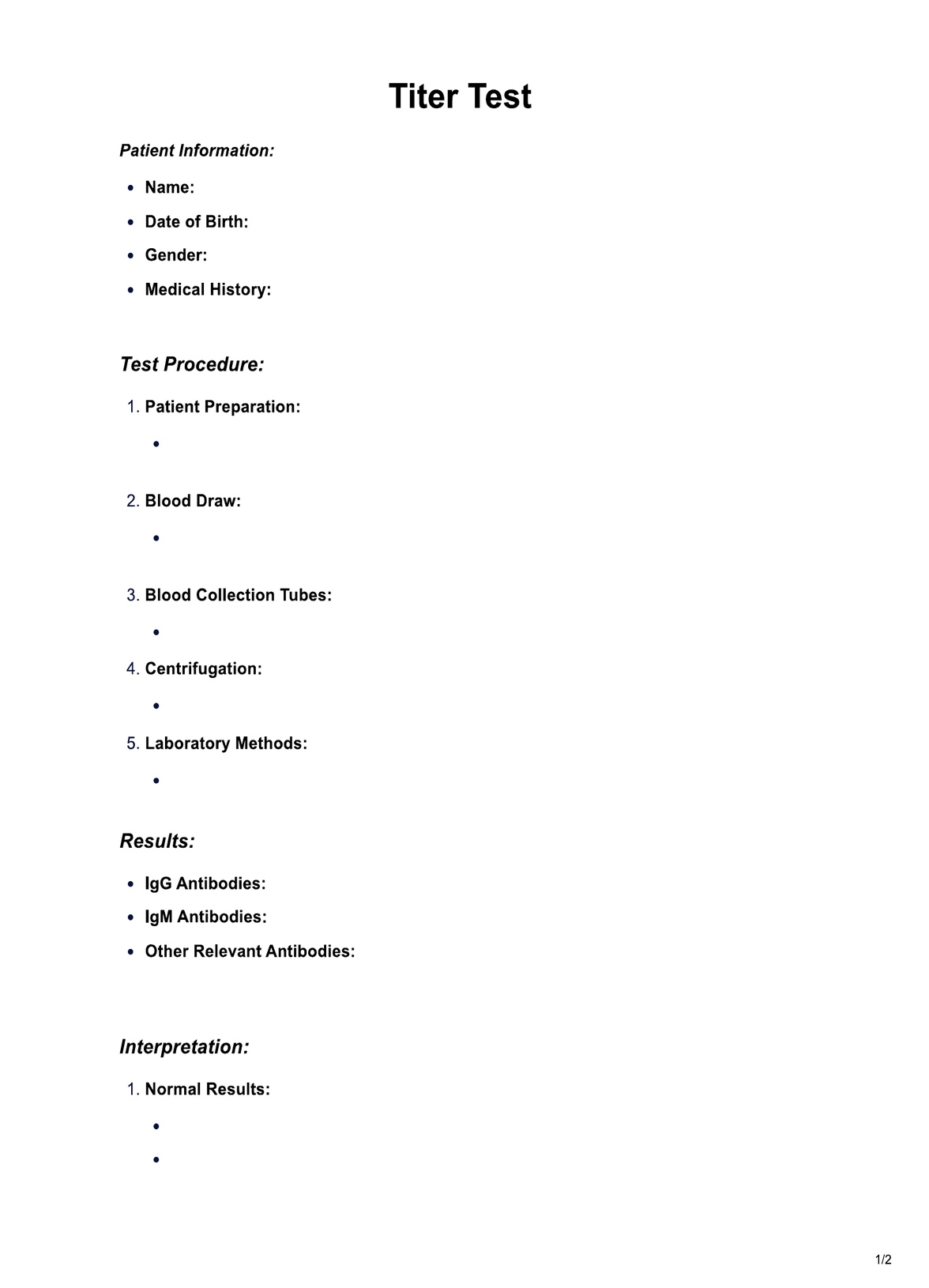A Titer Test is a diagnostic tool that measures the concentration of antibodies in the bloodstream, providing insights into the immune system's response to infections, vaccinations, or exposure to specific pathogens.

Titer Test
Ensure immunity with a Titer Test—a precise healthcare assessment measuring antibody levels. Trust accurate results for informed health decisions.
Titer Test Template
Commonly asked questions
A blood sample is drawn, usually from the arm, and then centrifuged to separate serum. Laboratory methods, such as ELISA or radioimmunoassay, measure antibody levels in the serum, offering valuable information about the immune system.
Undergo a Titer Test after vaccination to confirm immune response, before international travel to assess protection against regional diseases, during routine health check-ups, or if there's a known exposure to infectious agents.
EHR and practice management software
Get started for free
*No credit card required
Free
$0/usd
Unlimited clients
Telehealth
1GB of storage
Client portal text
Automated billing and online payments











